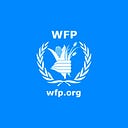Zimbabwe’s Innovative urban agriculture
In Zimbabwe, 42% of the urban population, which translates to 2.4 million people, are unable to meet their basic food needs.
Tatenda Macheka
Over the past two years, restricted movement due to COVID-19 lockdowns have impacted on 80 percent of the urban population- those heavily reliant on the informal sector.
Ruth Rugeje, a 34-year-old informal trader says her world crumbled in front of her eyes as she couldn’t do much to maintain her business or support her family on her meagre savings.
“My business was selling salt, soap and flour to people living in the rural areas.” said Ruth. “Some people paid me up front, some paid in grain and others would have credit, business was good and I was able to look after my mother and two siblings with no problem, until COVID-19 arrived in my country.”
Since 2019, in response to economic shocks and COVID-19, the World Food Programme (WFP) supports city dwellers like Ruth with cash-based transfers, to help them access basic food items.
Ruth has recently received tools and skills to kickstart a hydroponics project in her very own backyard. Hydroponics is a soilless cultivation technique that enables plant growth in arid or peri-urban areas. It uses up to 90 percent less water and 75 percent less space, while producing crops that grow 100 percent faster than traditional agriculture.
Using a set of plastic pipes, buckets, a renewable energy generated pump and plant solution which contains plant nutrients, Ruth is now growing spinach and tomatoes.
“We don’t have electricity every day so I use renewable energy which means I harvest the sunlight through solar panels into batteries to pump water through the pipes,“ said an excited and optimistic Ruth. “Next I will be planting strawberries and cucumbers to sell at my local market.”
“There is more than enough vegetables to eat, and I will sell the remaining. With the money I get, I will use to buy other things like soap, salt and cooking oil. Neighbours and friends visit me every morning to check if the vegetables are really growing without soil. They can’t believe it’s possible. It has become a learning centre and others in the area are planning to start their own projects ” she explains.
Hydroponics aims to improve food and nutrition security for people in cities who have very little physical space. It provides access to and encourages a diverse consumption of food. Like Ruth explains, it has good income-generating potential where gardeners can sell surplus food to local markets all year round.
WFP Zimbabwe’s Urban Resilience Building Programme focuses on improved agricultural and livelihood practices, such as mushroom farming, rabbitry, poultry production, even technical training such as digital skills and business skills, non-food value chains and hydroponic gardening.
For struggling families living in high density urban areas, many can’t afford the basics. Hydroponics is enabling people to grow vegetables such as lettuce, kyle, tomatoes, pepper, cucumber, broccoli, green beans, peas, cauliflower and amaranth.
Ruth plans to pass on the skills she acquired to her neighbours and friends so that they too can produce vegetables at a larger scale and supply them in bulk.
“I will be satisfied when my whole neighbourhood replicates what I am doing. When my neighbours are hungry, they always come to me for salt and flour, so if we are all empowered it will be easier to deal with the challenges we are facing today. ” WFP and partners support 140,000 households across 19 urban domains in Zimbabwe with the financial support from Swiss Agency for Development and Cooperation. The skills training is part of broader capacity building efforts, as a way to strengthen urban community resilience to shocks such as economic challenges and COVID-19.
However, funding for this programme is in urgent need. US$31 million is required to maintain assistance to this extremely vulnerable population over the next six months.
WFP delivers its Urban Social Assistance and Resilience Building programme with the support from the UK, USA, EU-ECHO, UN CERF, Switzerland, Canada, Germany, and Japan.
Read more about WFP’s work in Zimbabwe
